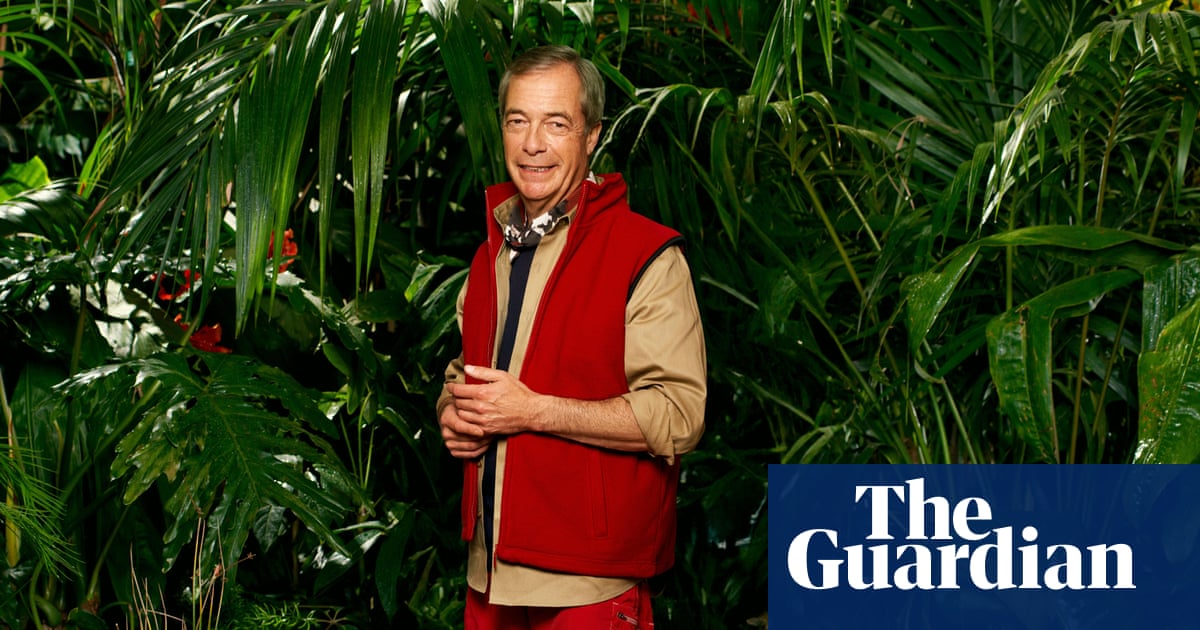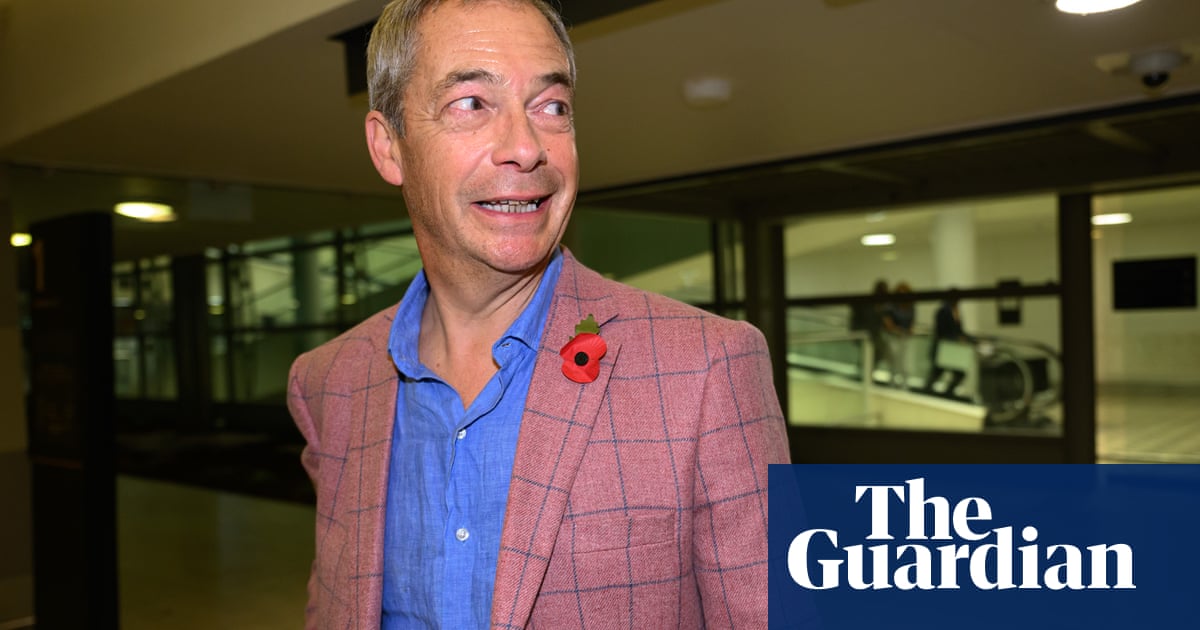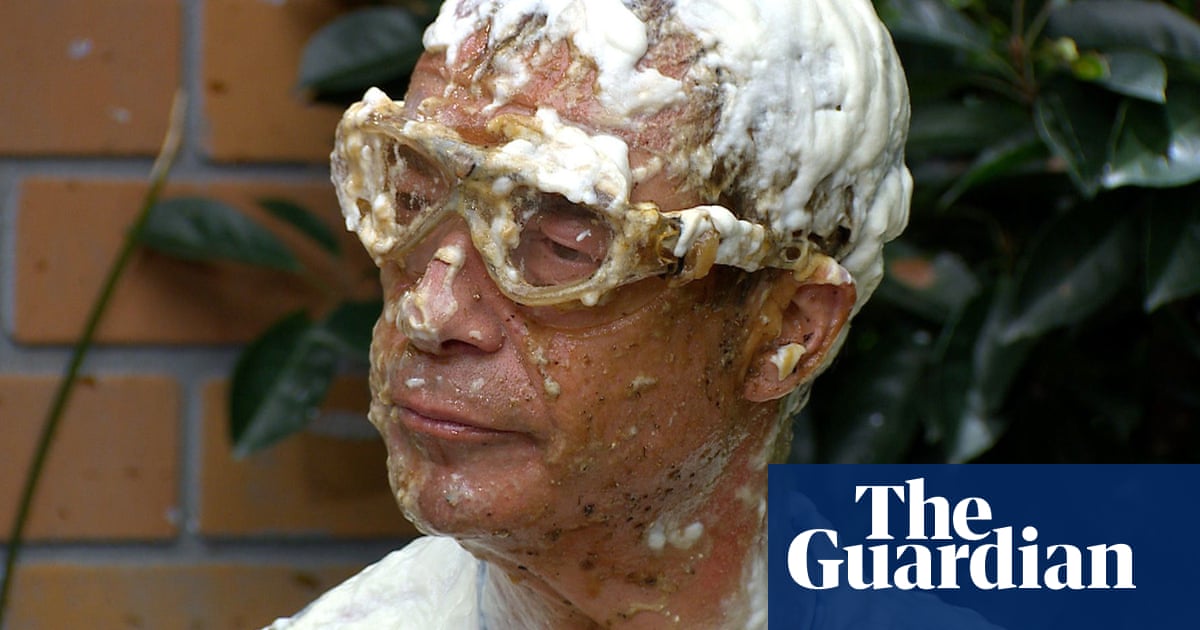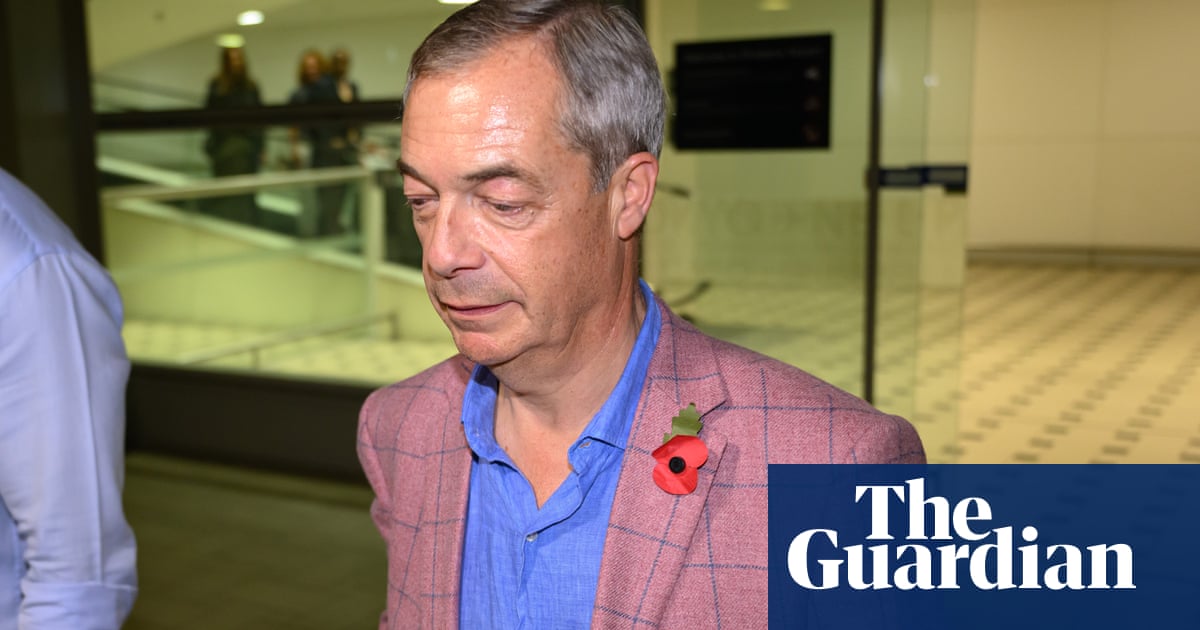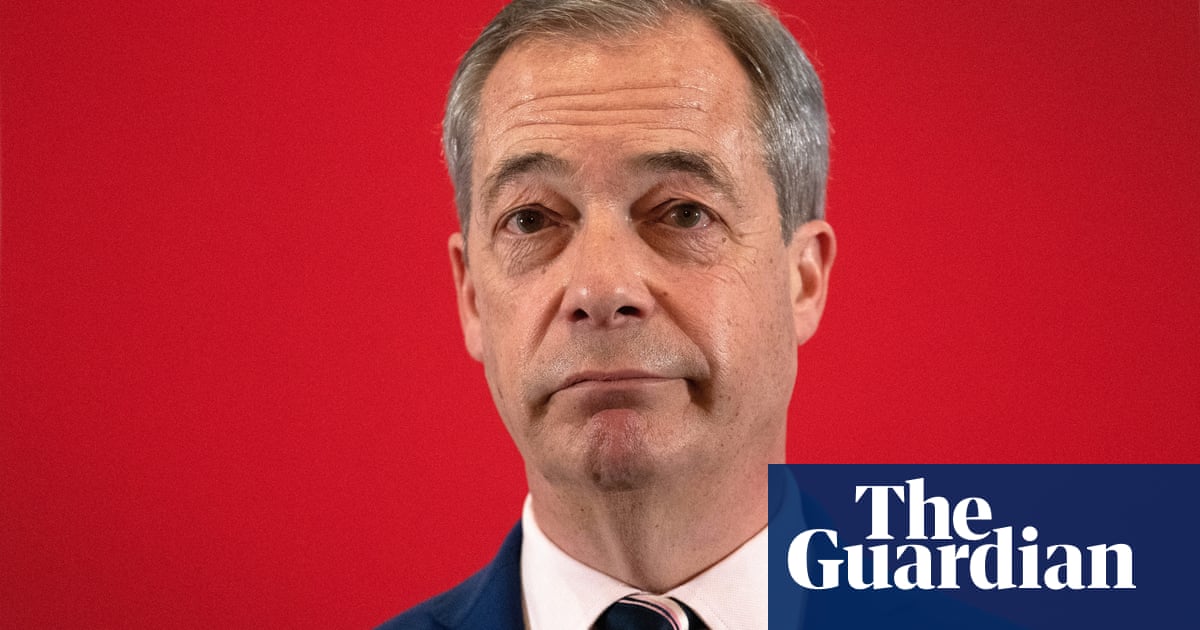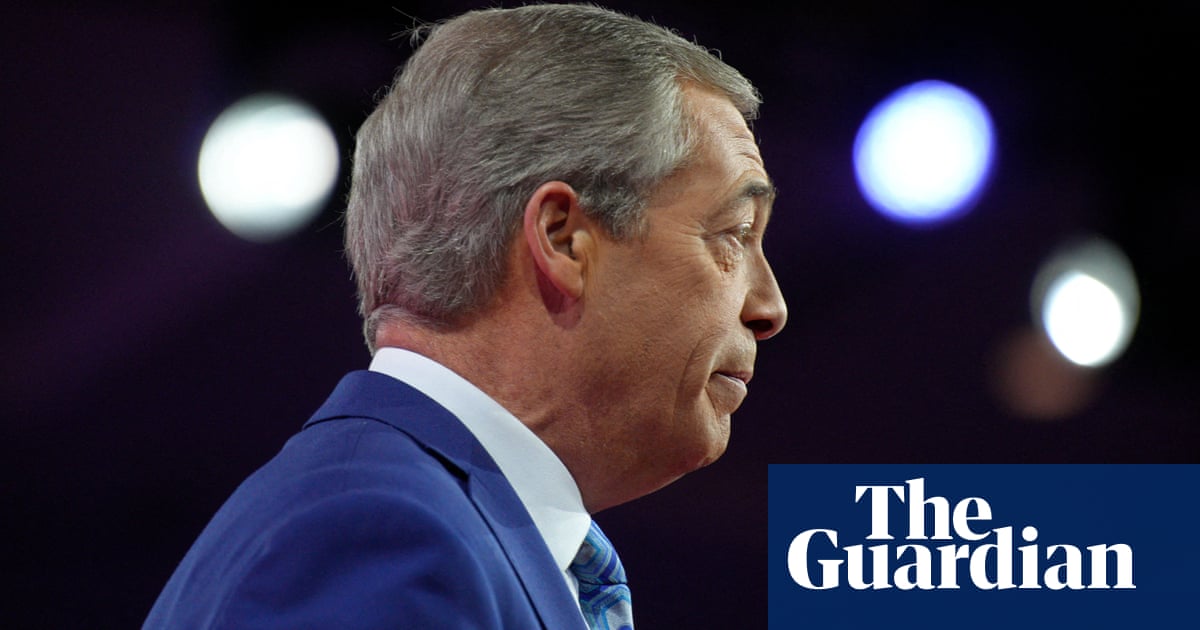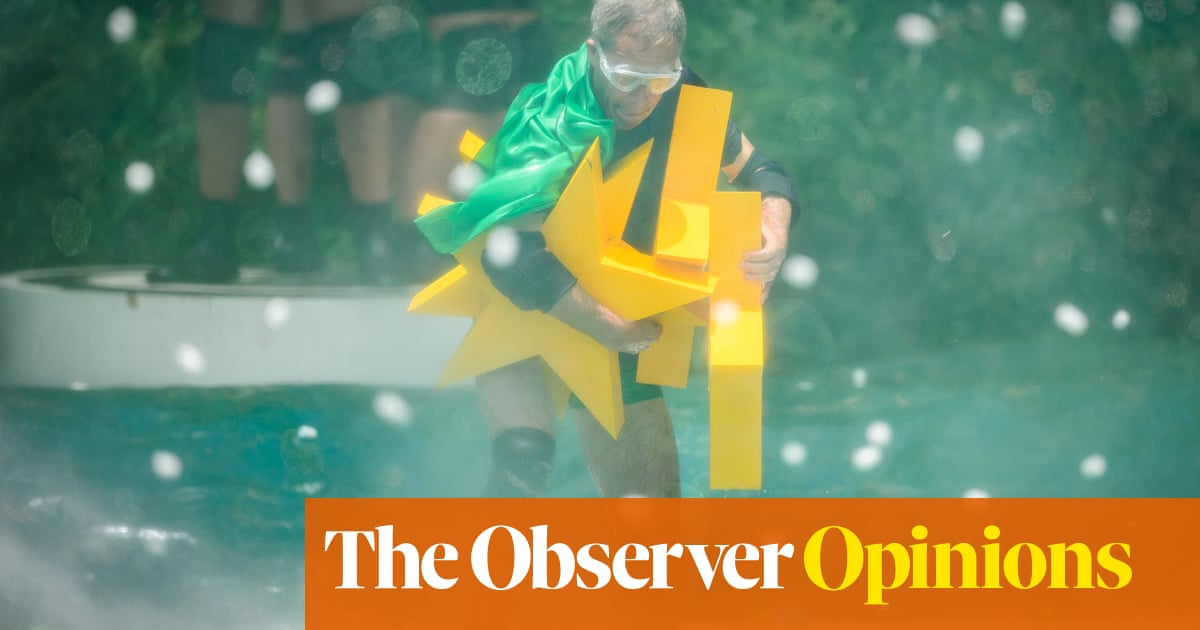
Ant and Dec, the hosts of I’m a Celebrity… Get Me Out of Here!, have some frustrating news for demagogues.
Dec (the shorter one): “I think we do a year without any politicians.”
Ant: “Agreed, agreed, agreed.”
Unluckily for British politics, this comes too late to prevent their programme’s de-fanging of Nigel Farage. Regardless of today’s final, its most expensive-ever participant has essentially won. Farage, thanks to the casting, his supporters and output of interminable tedium, has at least temporarily buried his reputation as, to put it at its most generous, a mean-spirited, sexist xenophobe whose troublemaking has blighted British political, cultural and economic life for generations.
As a bonus, in a reversal of normal refurb arrangements, it was ITV that paid Farage, a presenter on a rival channel, for his services: £1.5m. His employer, GB News, has been his extra-jungle partner, reporting every compliment and drumming up votes: “Nigel’s chances to win increase”; “Farage ‘comes across well’”.
That some viewers may struggle to reconcile the ITV “Nige”, seen fussing harmlessly about camp hygiene, with the person described by the New York Times, post-Brexit, as “one of the most effective and dangerous demagogues Britain has ever seen”, may be, to be fair, something ITV had not fully anticipated. Even though it should have.
Maybe, although sustained interrogation was unlikely from this series’ younger C-listers, producers expected some folk memory of, for instance, Farage’s campaigning for Trump: “The single most resilient and brave person I have ever met.” Or his choice of Putin as the leader he most admired, after the annexation of Crimea: “If you poke the Russian bear with a stick he will respond.” Or his campaign against the RNLI, a “migrant taxi service”. Or his dislike of “ostentatious” breastfeeding. And if no one recalled how, in 2010, the MEP Farage was fined for directly abusing the EU president – “you have all the charisma of a damp rag and the appearance of a low-grade bank clerk” – maybe, over the three weeks, he’d betray himself with some similarly ugly phrasing.
“He is a gifted communicator,” the damning New York Times report had conceded, “verbally dexterous, with a sense of humor”. If some of that had emerged, it would have made the ITV laundering facility at least entertaining.
But it turns out that the charisma of a damp rag and appearance of a low-grade bank clerk is an almost spookily accurate description of Farage’s jungle persona. In his IAC iteration, Farage’s fabled fluency and ditto invective is replaced, with scarcely a lapse, with the manner of a trusted – if long ago frisky – Rotarian whose occasional testiness amid the young people’s mess can seem worryingly relatable.
Towards Nella Rose, a stern young influencer, Farage acted something close to conciliatory, reminding her, after they differed, that ideas about offence had changed. His (ridiculous, given the outcry) example, that Prince Harry once dressed in Nazi uniform, reflected Farage’s confidence that no camp mates would recall the well-known accusation about his schoolboy years: that as well as an Enoch Powell fan he was a fascist sympathiser. He denies the latter.
In its innocence, the emptying camp even became protective, like a nest of unsuspecting warblers harbouring a gigantic cuckoo. A tip there for fellow demagogues: act vulnerable. “Aw, we love ya, want to make sure you’re all right,” said Danielle Harrold of EastEnders, prior to being evicted before Farage.
Last year, Matt Hancock had to deal with the unimpressed Boy George and Charlene White. This year’s team, featuring no one capable of unsettling Farage, might as well have been selected by GB News or his girlfriend. The presenters got no further than twitting him, after he quit a challenge, with liking, geddit, “the leave option”.
Admittedly anything more pointed would have enraged the Faragists, who have been jealously counting his minutes, complaining of bias, plastering his face across social media.
If everything about camp, from the uniform to the prevailing incuriosity and aversion to conflict, already conspired to liberate Farage from his past, it was genius on his part to shower (against camp rules) naked. Nigel’s arse was not just a precious talking point in a programme whose presenters are, with so little else to discuss, captivated by bums, farting and toilets. Here was unaccommodated Farage as a poor, bare forked animal, practically, when divested of his respectable nutter outfits (tweeds, velvet-collared coat, mustard cords), one of us.
Not all IAC stars have prospered but, when Nige van Winkle emerges from his news blackout into a political landscape changed by Rishi Sunak’s accelerated collapse, the makeover massively improves his chances.
Whether he leads the Reform party into the election, or responds to invitations to destroy the centre right from within, he will forever be indebted to Ant and Dec for making either outcome appear briefly less insane. I’m a Celebrity has been Nige’s useful idiot.
For the presenters, a reluctance to collaborate in future jungle-washing, supposing that explains their feelings about more politicians, is understandable. On the other hand, without this talent pool what does the programme have left? Diminishing returns from its hilarious opening proposal, that no humiliation is too gross for desperate celebrities, led to the revelation, also no longer astonishing, that the same applies to some politicians if they are paid enough.
But with Farage’s restraint and few camp mates of interest, this season has exposed its reliance, beyond some innovations in tormenting participants, on drab chat (“sleep well?”), mawkish bonding (“group hug”) and on its eternally cheeky presenters, face-pulling and sauce (“they’ll be ‘critting’ themselves!”). It might look less desperate if they were not now five years older than the prime minister. Oooh lalalalalala! as Dec, or it might have been Ant, said last week.
After its years humiliating celebrities, there’s a sort of justice, I suppose, in seeing I’m a Celebrity terminally humiliated by one overpaid recruit. That’s if the damage stops there.
Catherine Bennett is an Observer columnist




